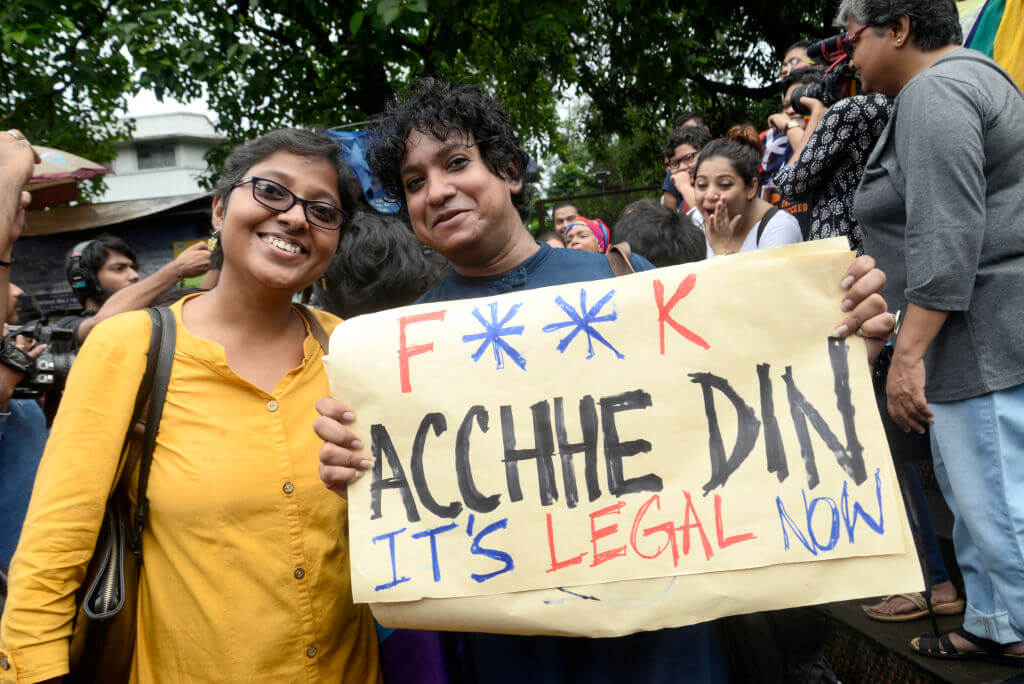After a long legal battle, the Supreme Court of India officially struck down its sodomy laws. These policies were put into place during the Raj period of India’s history — when it was colonized and ruled by the British empire. Although India is not ruled by Britain anymore, and many of the laws have been amended, the penal code is still used by the government as the main criminal code.
When we talk about the treatment and criminalization of LGBTQ people in nonwestern parts of the world like South Asia, the Middle East or Africa, we often associate those laws with being “primitive.” Even well meaning people might unintentionally have a xenophobic belief attached to where they assume these policies came from. These cultures and religions are portrayed as primitive, so of course they have backwards laws towards gay people. In reality, the British empire played a massive role — and not just in India.
According to Human Rights Watch, the British empire is responsible for the sodomy laws in almost 40 countries. “In Asia and the Pacific, colonies and countries that inherited versions of that British law were: Australia, Bangladesh, Bhutan, Brunei, Fiji, Hong Kong, India, Kiribati, Malaysia, Maldives, Marshall Islands, Myanmar (Burma), Nauru, New Zealand, Pakistan, Papua New Guinea, Singapore, Solomon Islands, Sri Lanka, Tonga, Tuvalu, and Western Samoa.
“In Africa, countries that inherited versions were: Botswana, Gambia, Ghana, Kenya, Lesotho, Malawi, Mauritius, Nigeria, Seychelles, Sierra Leone, Somalia, Swaziland, Sudan, Tanzania, Uganda, Zambia, and Zimbabwe.”
Imperial powers like France and Germany are also responsible for the sodomy laws in their former colonies, but not nearly to the extent of Britain.
Of course, the Indian government isn’t completely off the hook for its treatment of its LGBTQ community. In 2009, the High Court of Delhi ruled that Section 377 (the code that specifically banned sodomy) was unconstitutional. This ruling only lasted a few years, though, as the Supreme Court of India overruled that decision in 2013 with a statement that said the law should be changed through parliament, not the courts.
LGBTQ activists in some of the other former colonies in Asia and Africa are continuing a fight for equality. Kasha Nabagesera is a lesbian activist in Uganda fighting for her rights, despite constant threats and adversity. A CNN profile detailed the many threatening calls that Nabagesera receives, as well as her being doxed in a Ugandan newspaper with other gay people under the headline “Hang Them.” A few months after the doxing, her close friend was murdered.
Rosanna Flamer-Caldera is a Sri Lankan activist who is working towards policy change in her country as part of her organization Equal Ground. They hold events for LGBTQ people and assist with getting asylum for those that are being harassed in the country. In an interview with NBC, she specifically called out British colonial law. “On one hand, we are screaming about homosexuality being a Western import, when in fact it is the British laws that are a Western import, not homosexuality,” she said.
When trying to understand the history of sexuality and gender minorities countries like India, it is important to consider the lasting effect of colonization on these nations. We can see extremely similar formal structures to the ones in Britain: Education systems, government bodies, etc. When we ask why it took so long for India to change its laws, we need to include colonial history in that conversation. We should be asking what kind of humanitarian impacts former colonies go through.
Five gay public figures in India were brave enough to come forward and be the faces of this fight. And in their landmark win, they not only beat the 2013 court ruling, but also beat down a section of policy bestowed upon them by their colonizers.
Don't forget to share:
Help make sure LGBTQ+ stories are being told...
We can't rely on mainstream media to tell our stories. That's why we don't lock our articles behind a paywall. Will you support our mission with a contribution today?
Cancel anytime · Proudly LGBTQ+ owned and operated
Read More in Impact
The Latest on INTO
Subscribe to get a twice-weekly dose of queer news, updates, and insights from the INTO team.
in Your Inbox













